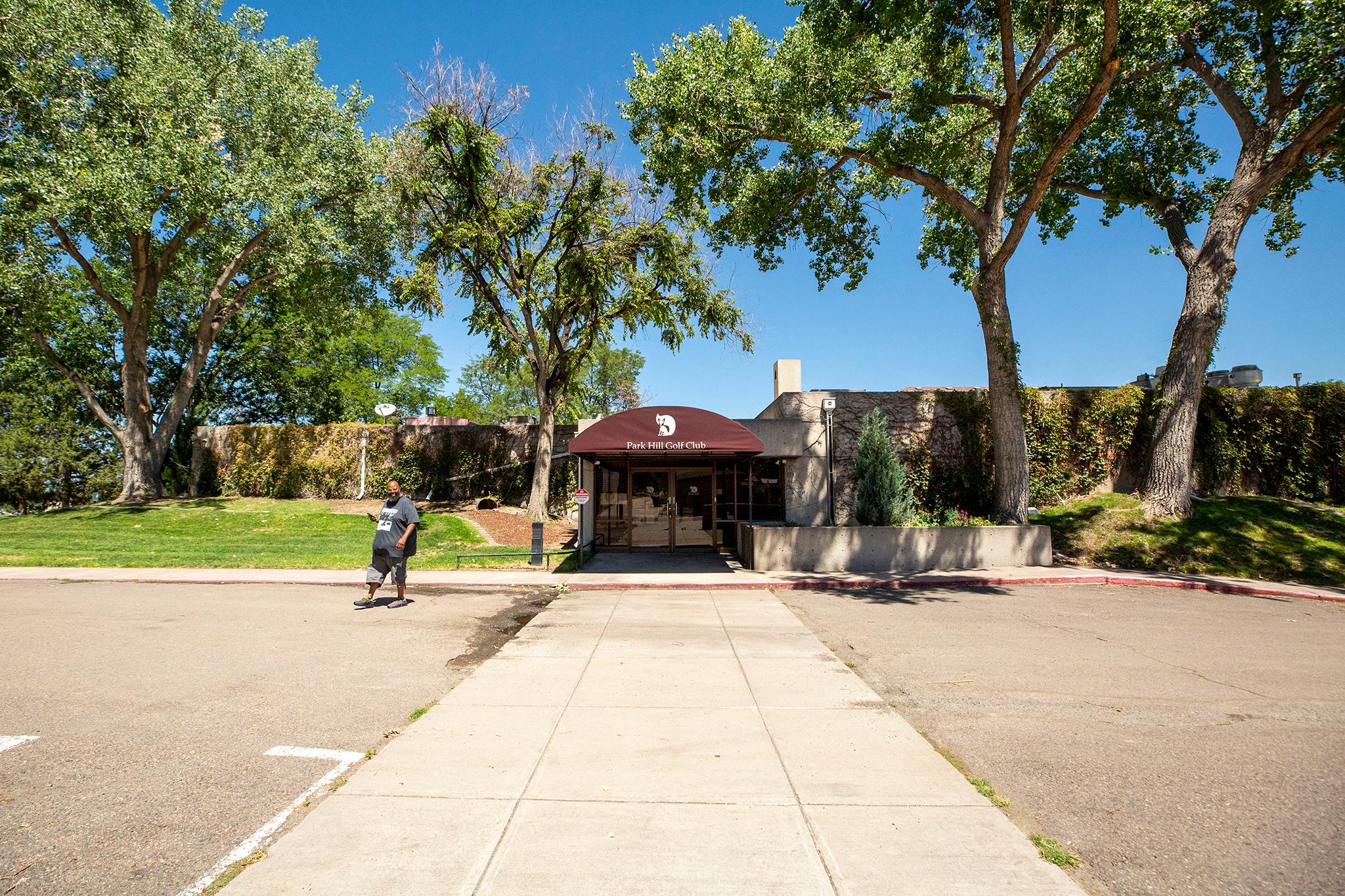As voters consider whether to approve Westside Investment Partners' massive development at the Park Hill Golf Course on 155 acres of Northeast Park Hill, a longtime community nonprofit Sisters of Color is suing the developer and golf course co-owner the Holleran Group.
The lawsuit was initially filed in May 2022.
On Thursday, the developers tried unsuccessfully to prevent the nonprofit from sharing depositions -- on-the-record testimony from people involved in the case.
That maneuver came after a leaked deposition from former Holleran employee Ty Hubbard revealed that Denver-raised billionaire Robert Smith, the richest Black man in the United States who has been accused of evading taxes, had been involved in the project, as Westword first reported.
Critics of the development have used the depositions -- and the court case -- to argue the developer is untrustworthy.
And with an election coming, trust matters, said Sisters of Color Executive Director Adrienna Corrales Lujan. She wants voters to ask themselves whether they believe Westside and the Holleran Group will fulfill their promises if voters say they can develop the land.
How did Sisters of Color and the developers find themselves in court?
Not long after Westside bought the golf course in 2019, Sisters of Color struck a three-year agreement with the Holleran Group to create a new cultural arts and wellness center in the Park Hill Golf Course clubhouse.
There would be a food share, a food-as-medicine program, activities for elders and youth, and a health clinic.
"We had an agreement for three years," said Lujan.
But before Sisters of Color could set up their center in the clubhouse, the space needed work, and they agreed to do it.
"It was pretty rundown, dirty, filled with trash and garbage and things," Lujan said. "We would basically fix up the building in lieu of paying rent."
By partnering with the developers, Sisters of Color believed they could sway the developers to engage more authentically with the community. But the Holleran Group cut back the nonprofit's access to the space they were paying to remodel, and the nonprofit felt burned.
So Sisters of Color began to attempt to renegotiate the lease, since they believed the initial contract was now void.
"They kind of just refused to allow us to ever move in," Lujan said. "I think we went through five or six iterations of the lease, and it became clear that, you know, it wasn't really about community engagement."
So, Sisters of Color decided to sue Westside and the Holleran Group for the money they had put into the building.
"Why are we going to give people all of this money. .[They] are obviously disrespectful of the communities that they say they serve," Lujan said. "So for us, this is really just an example of this cycle of predatory development and utilizing systemic and institutional racism and violence to impact BIPOC communities, specifically around built environment.
"This story isn't anything new," Lujan said. "This story of development and people not being transparent -- that's pretty much the name of the game in development for a very long time."
Sisters of Color wants more than money and justice by bringing attention to their sour dealing with the developers.
"We really see this as more of an opportunity, one to really warn other communities about what this process looks like, so that people know what the red flags are, where they can leverage their community power a little bit better," Lujan said.
Going public with depositions brought renewed attention to the lawsuit and likely triggered the developers' request for the protective order.
"As a matter of policy, neither Westside nor Holleran comment on matters that are in active litigation," wrote Westside spokesperson Bill Rigler to Denverite. "In this case, and out of respect for the judicial process, Westside and Holleran have requested a protective order to ensure that this case is litigated in a courtroom rather than in the court of public opinion."
Ultimately, the judge declined to offer a protective order, but did state that the developers could request that certain information be made private. How that plays out will be decided in the weeks to come, as the case proceeds.
"Bottom line for us is that yesterday was a win: The judge agreed that Westside and Holleran have the right to ensure that confidential and proprietary information contained within the depositions shouldn't be disclosed," noted Rigler. "Westside and Holleran now have a period to review any depositions and request redactions of proprietary or immaterial information.
"Sisters of Color United for Education will still have the ability to do whatever they want with the depositions, including leaking them, but it means they can't go on fishing expeditions and then publish them as fact," he added.
As for Sisters of Color, Lujan says they want to be open about what's happening.
"But you know, there's a lot of money involved," she said. "Basically, they don't want us sharing any details about the case. But you know, as a community center we are transparent. We have let community know what was going on every step of the way."
This story has been updated with additional comment from Rigler.











